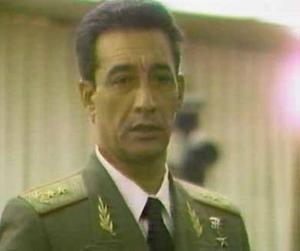Castro’s fears led to a revolutionary hero’s execution and drunken binges by his brother Raúl, according to a former security officer.
By Juan O. Tamayo
Fidel Castro was so afraid of a revolt in Cuba’s most elite paramilitary unit that he ordered his motorcade to avoid driving past its base, his top bodyguard at the time says. Raúl Castro was so depressed that he was going on drunken benders and soiling his pants.
Cuba’s top military hero, Gen. Arnaldo Ochoa, had been executed by firing squad for drug smuggling. And a longtime member of Fidel’s innermost circle, Interior Minister José Abrantes, was in jail awaiting trial for failing to stop the trafficking.
That summer 25 years ago posed one of the toughest challenges ever for the Castro brothers — to show that their top deputies had trafficked drugs without their consent, and to avert a backlash from other soldiers who believed the Castros were lying.
“That was the drop that overflowed my glass,” said Juan Reinaldo Sánchez, 65, who served 17 years on Fidel’s personal security detail and now lives in Miami. “That he would send to the firing squad a man who was a true hero.”
Ochoa, 59, was Cuba’s top military icon. He was a veteran of campaigns in Angola, Venezuela, Ethiopia and Nicaragua, had won the country’s highest honor, Hero of the Revolution, and sat on the Central Committee of the Communist Party.
Nevertheless, he was executed on July 13, 1989, along with three senior officers of the Ministry of the Armed Forces and Ministry of the Interior (MININT), after a military court convicted them of drug smuggling and treason.
Ochoa was not plotting to overthrow Fidel, as was rumored at the time, said Sánchez, who in 1989 stood at Fidel’s elbow as keeper of the diary of the Cuban leader’s daily activities. Ochoa did not have the troops or the means to carry out a coup, he added.
But evidence presented at their trial showed that Ochoa and the three others who were executed — Antonio de la Guardia, Jorge Martinez and Amado Bruno Padron — had arranged cocaine shipments through Cuba and to the United States for Colombia’s Medellin cartel.
Abrantes, one of Fidel’s oldest and closest aides, a former head of his security detail and a general, was arrested later with six other MININT officers for failing to stop the drug traffic and corruption. He died of a heart attack in 1991 while serving a 20-year prison sentence.
Fidel had approved Abrantes’ involvement in drug trafficking, Sánchez alleged. And Raúl, then minister of defense, had approved Ochoa’s involvement. Military Counter-Intelligence (CIM), which reported directly to Raúl, had to have known of Ochoa’s activities, yet no CIM agent turned up at either trial as defendant or witness.
Feature continues here: General Arnaldo Ochoa
